In Russia electric cars can grow on 30% a year, says PwC, but only with government support
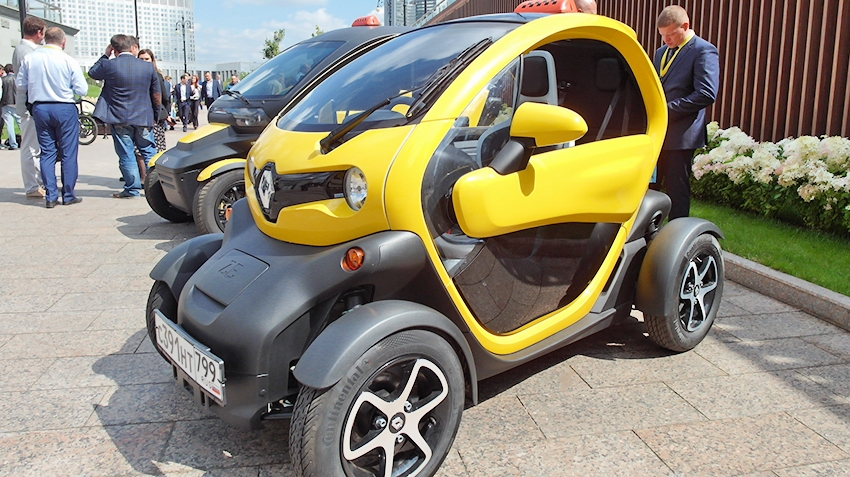
27 September 2019
PwC believes that Rossi electric vehicles could grow significantly by 2025, though will not exceed 1% from the market
Analysts at PricewaterhouseCoopers (PwC) released a study "Dynamics of the electric car market in Russia", which predict that sales of electric vehicles in our country may increase substantially in the period 2018-2025 years, reaching an average annual growth of 30%, and the largest capital market and 60%, equivalent to sales growth from 2.4 thousand to 14.9 thousand in the entire territory of the Russian Federation.
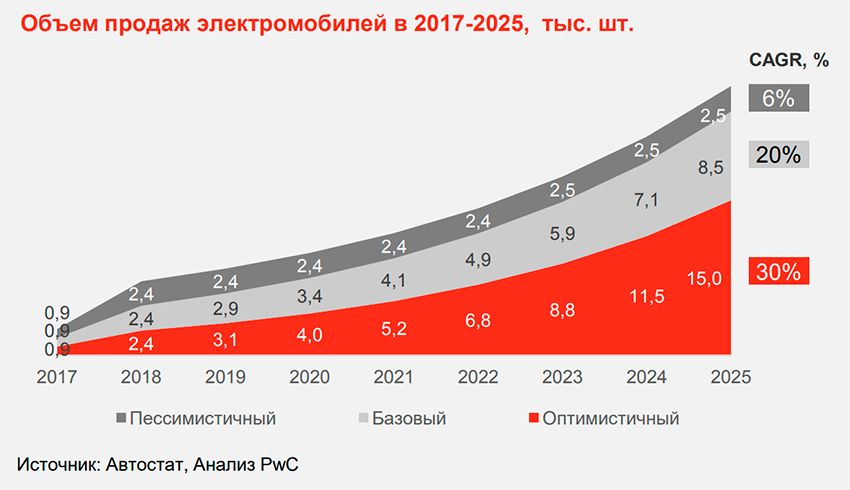
Accordingly proposed three scenarios of market development of electromobility:
• In the baseline scenario, PwC predicts growth in state support to boost sales and infrastructure development.
• In the pessimistic scenario assumes a slow rate of infrastructure development and limited government support.
• In the optimistic scenario assumes that the Government will actively use the international experience of other countries imposing similar incentives in Russia.
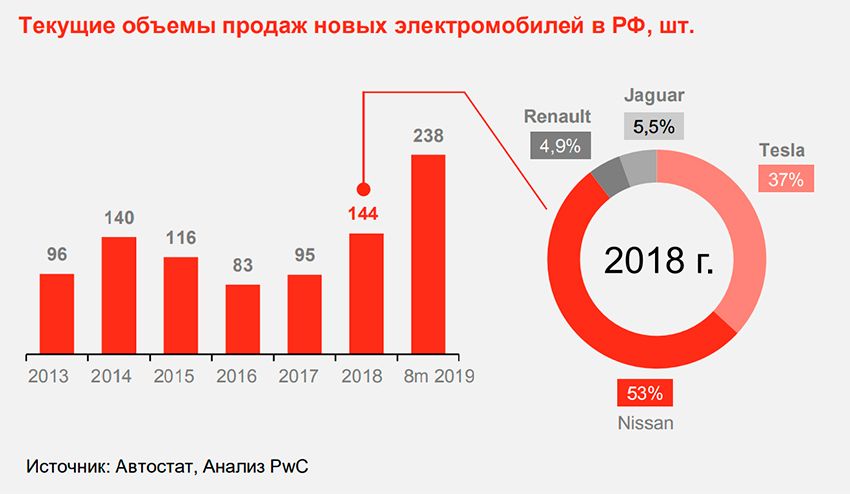
The results of 2018 in Russia, has sold a total of 2 383 units of new and used cars. The share of sales of electric vehicles in total new car sales amounted to for the year of only 0,14%.
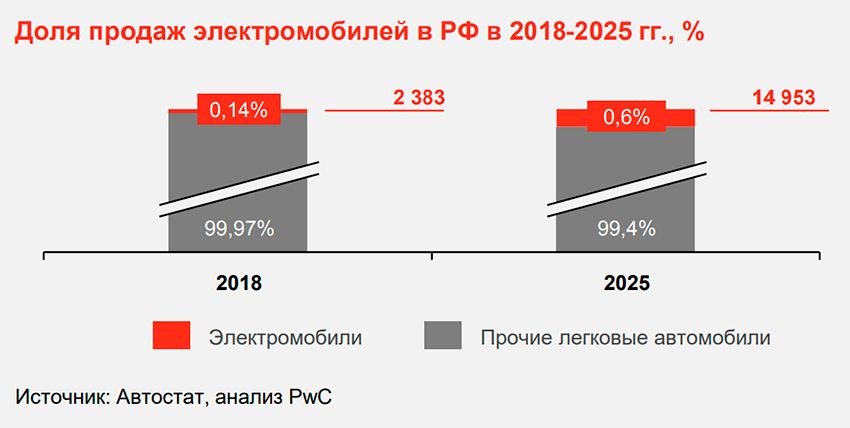
Most of the new electric cars (40%) was sold in Moscow and Moscow region.
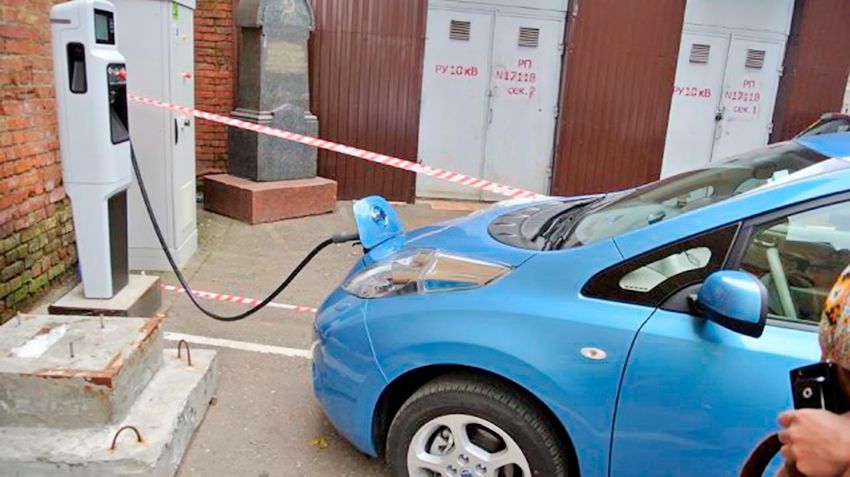
In Vladivostok the popular Nissan LEAF with mileage, but custom is often obstructed when imported
At the same time, more than 94% of the sold electric vehicles were second-hand, as their sales were concentrated in the Primorsky and Khabarovsk territories, as well as in the Irkutsk region.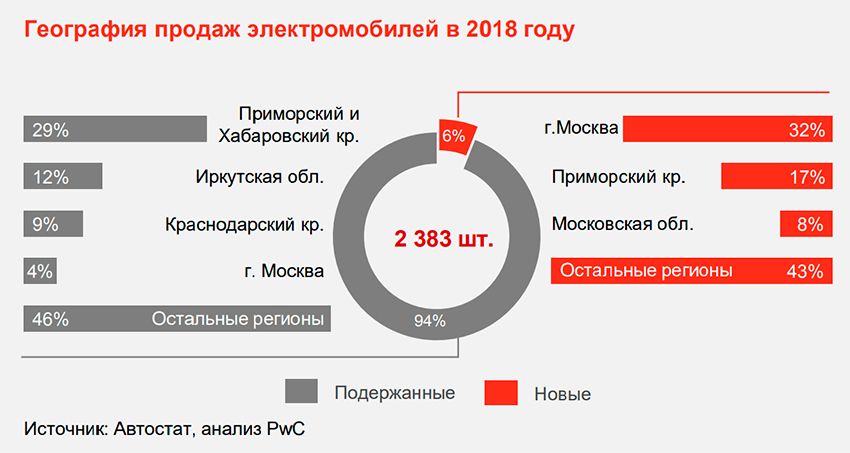
In the next years, sales growth of electric vehicles is due to the following factors: active support of sales of electric vehicles government, infrastructure development, cost reduction of the battery to adapt its modes of operation under the Russian climate conditions.
This year the situation is this: at the end of 7 months of 2019, the market for electric vehicles in Russia amounted amounted to 1914 units of which only 188 units and new units. 1726 with the mileage that is already made up about 80% of the optimistic forecast for 2019. It is stated that a significant increase of state support measures has not happened, but in the case of their active integration is possible to expect preservation of the current rate of growth.
Conclusions: given the rapid growth of the electric car market, market participants should focus on identifying strategies engines, charging infrastructure, market segmentation
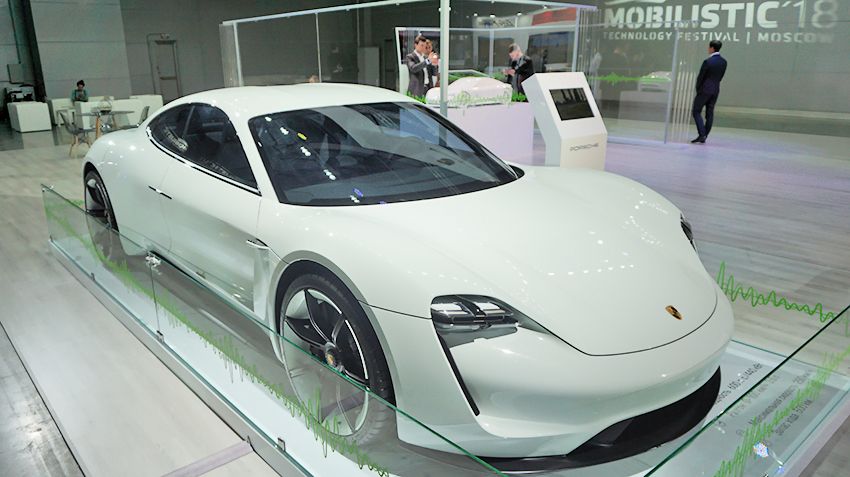
The prototype Porsche Taycan at the exhibition of electromobility MOBILISTIC'18 in Moscow (in parallel with the MIAS-2018)
In the field of the strategy of market segmentation this means identifying the most attractive segments of the market, determining the optimal product portfolio, as buyers of electric cars are not poor people and therefore are very demanding customers so that the offered product must meet their expectations. The company needs to analyze the market based on the structure costs to identify target segments and develop the optimal product portfolio.The definition of strategy in terms of engines as most expensive part electric vehicle manufacturers must match their capabilities with market needs to develop profitable and diversified strategy for motor settings (tE. not to offer too expensive and too budget – ed.).
The definition of sales strategy and service dto increase brand awareness when entering the market is possible (and desirable – ed.) cooperation with careregular and leasing, and taxi (photo screensaver) companies.
PS of Course, the growth to 30% and especially at 60% per year of the market, "trains" is impressive, but at such a low initial start, even if successful, it will be "a spoonful of honey in a barrel of tar", i.e., even in the optimistic scenario, almost no significant environmental role (maybe except Moscow), their introduction will not play. Besides, if, yet EV sales in many European and Asian countries comparable scantiness with the Russian one, in the coming years they are inevitably (too large investment has already been made and more are invested) will increase by orders of magnitude and orders of magnitude, and amid the millions of sales, the Russian 15-something thousand will look simply pathetic. That's when our bosses caught on and start hard to "catch up" through incentives, Spica, etc., etc. And given that the rate of the Government is transferred to gas fuel (directly on the thumbnail of the famous Soviet pop satirist Arkady Raikin: "the Seventh product shoot – click on the fourth"), then our market can get through 5-7 years behind forever.
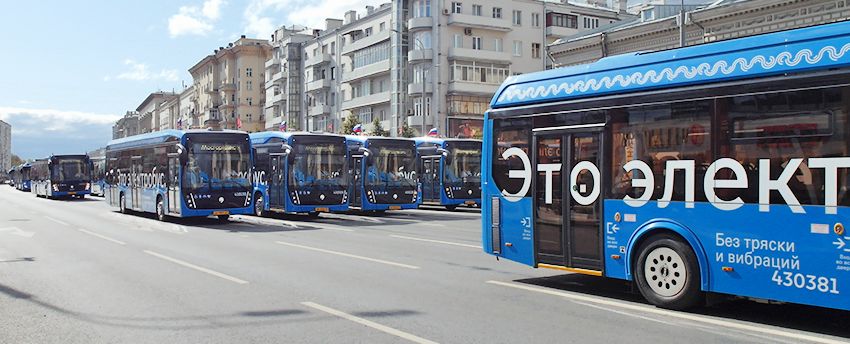
Slender ranks of the Moscow buses on the Parade utility vehicles in September 2019
Although now, for example, the introduction of buses Moscow has reached a leading position in Europe..
|
|
|
Element was not found.








